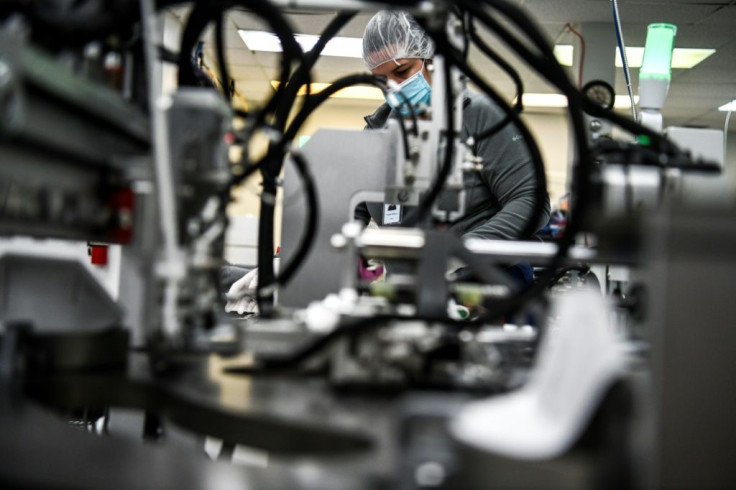US Manufacturing Rebound Accelerates In March: Survey
The rebound in American manufacturing picked up speed in March thanks to rising demand amid the pandemic reopening, according to an industry survey released Thursday.
However, that surge from the Covid-19 shutdowns is causing supply bottlenecks, as well as rising prices, the Institute for Supply Management (ISM) monthly survey showed.
ISM's manufacturing index jumped 3.9 points last month to 64.7 percent, the highest reading since December 1983.
"Manufacturing performed well for the 10th straight month," ISM survey chief Timothy Fiore said.
However, "companies and suppliers continue to struggle to meet increasing rates of demand due to coronavirus (Covid-19) impacts limiting availability of parts and materials," he said.
New orders, production and employment all rose, indicating faster gains, all well above the 50-percent threshold indicating growth.
And while the price index dipped slightly, at 85.6 percent it remains at near the highest point since July 2008, and all 18 industries reported increasing prices for raw materials.
"Extended lead times, wide-scale shortages of critical basic materials, rising commodities prices and difficulties in transporting products are affecting all segments of the manufacturing economy," Fiore said.
In addition, "labor-market difficulties at panelists' companies and their suppliers persist."

Still, he said "optimistic panel sentiment increased, with eight positive comments for every cautious comment, compared to a 5-to-1 ratio in February."
All of the six biggest manufacturing industries posted strong growth in March, and none of the 17 sectors included in the survey contracted.
Oren Klachkin of Oxford Economics said President Joe Biden's massive pandemic relief package will help drive continued growth in the sector.
"Looking ahead, solid goods demand, rising capital investment, generous fiscal stimulus, and rebounding global activity will drive a healthy manufacturing expansion," he said.
And while "supply chain disruptions will constrain growth," he said "those challenges will gradually fade as vaccinations ramp up and the economy reopens."
hs/dw
© Copyright AFP {{Year}}. All rights reserved.





















